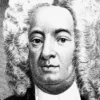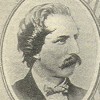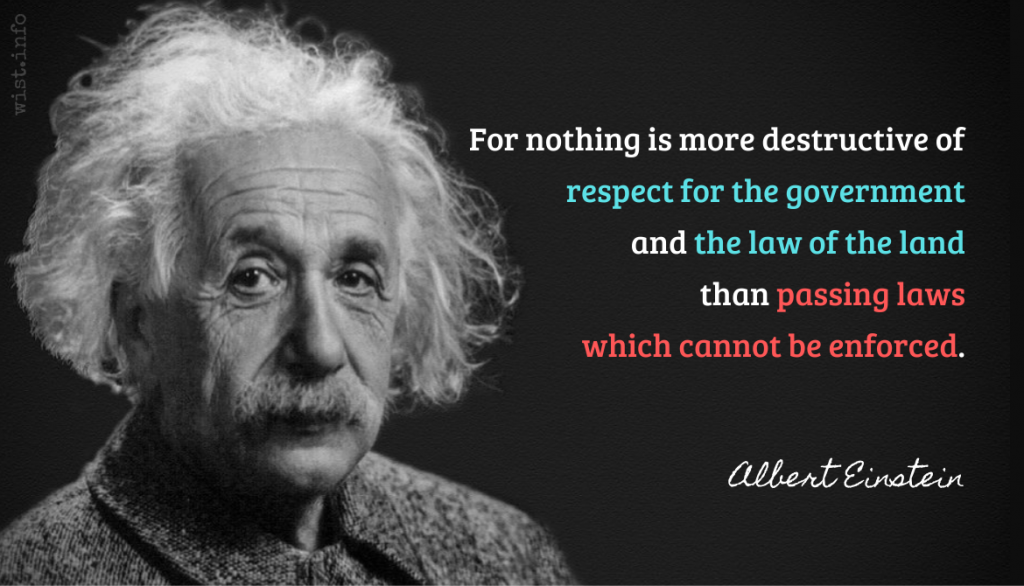The Puritan is one who uses the Cross as a hammer to knock in the heads of sinners.
H. L. Mencken (1880-1956) American writer and journalist [Henry Lewis Mencken]
A Little Book in C Major, ch. 4, § 26 (1916)
(Source)
Quotations about:
Puritan
Note not all quotations have been tagged, so Search may find additional quotes on this topic.
September ye 15th, 1682
To Ye Aged and Beloved, Mr. John Higginson:There bee now at sea a shippe (for our friend Mr. Esaias Holcroft of London did advise me by the last packet that it wolde sail some time in August) — called ye Welcome, R. Greenaway, master, which has on board an hundred or more of ye heretics and malignants called Quakers with W. Penne who is ye chief scampe at ye hedde of them. Ye General Court has accordingly given secret orders to Master Malachi Huscott of ye brig Porpoise to waylaye ye said Welcome slylie as near ye coast of Code as may be and make captive ye said Penn and his ungodlie crewe so that ye Lord may be glorified and not mocked on ye soil of this new countrie with ye heathen worship of these people. Much spoyle can be made of selling ye whole lotte to Barbadoes, where slaves fetch goode prices in rumme and sugar and we shall not only do ye Lord great good by punishing ye wicked but we shall make great gayne for his ministers and people. Master Huxett feels hopefull and I will set down the newes he brings when his shippe comes back.
Yours in ye bowels of Christ, Cotton Mather
Cotton Mather (1663-1728) American Puritan clergyman, writer
(Spurious)
First printed in an article of the Easton, Pennsylvania Argus (28 Apr 1870), written by James F. Shunk, who claimed that the letter had been found in a "chest of papers" donated to the Massachusetts Historical Society. Though denounced as a forgery almost immediately, the letter continues to circulate now and again (as a particular juicy bit of invective against Puritan hypocrisy). The evidence for considering it a hoax by Shunk is given in Hathaway, "'Ye Scheme to Bagge Penne': A Forged Letter Smears Cotton Mather," The William and Mary Quarterly (Jul 1953).
Napping is too luxurious, too sybaritic, too unproductive, and it’s free; pleasures for which we don’t pay make us anxious. Besides, it seems to be a natural inclination. … Fighting off natural inclinations is a major Puritan virtue, and nothing that feels that good can be respectable.
Barbara Holland (1933-2010) American author
Quoted in Alex Beam, “Literature, One Screen at a Time,” New York Times (16 Nov 2005)
(Source)
One strain in Protestant thinking has always looked to economic life not just for its efficacy in producing goods and services but as a vast apparatus of moral discipline, of rewards for virtue and industry and punishments for vice and indolence.
Richard Hofstadter (1916-1970) American historian and intellectual
“Pseudo-Conservatism Revisited — 1965,” sec. 3 (1965)
(Source)
Forasmuch as the feast of the nativity of Christ, Easter, Whitsuntide, and other festivals, commonly called holy-days, have been heretofore superstitiously used and observed; be it ordained, that the said feasts, and all other festivals, commonly called holy-days, be no longer observed as festivals; any law, statute, custom, constitution, or canon, to the contrary in anywise not withstanding.
(Other Authors and Sources)
Puritan law passed in the British Parliament (8 Jun 1647)
(Source)
Quoted in Daniel Neal, The History of the Puritans, Vol. 2 (1837).
Laborare est orare. By the Puritan moralist the ancient maxim is repeated with a new and intenser significance. The labor which he idealizes is not simply a requirement imposed by nature, or a punishment for the sin of Adam. It is itself a kind of ascetic discipline, more rigorous than that demanded of any order of mendicants — a discipline imposed by the will of God, and to be undergone, not in solitude, but in the punctual discharge of secular duties. It is not merely an economic means, to be laid aside when physical needs have been satisfied. It is a spiritual end, for in it alone can the soul find health, and it must be continued as an ethical duty long after it has ceased to be a material necessity.
R. H. Tawney (1880-1962) English writer, economist, historian, social critic [Richard Henry Tawney]
Religion and the Rise of Capitalism, ch. 4 (1926)
(Source)
The Latin means, "To work is to pray."
Business and pleasure, rightly understood, mutually assist each other, instead of being enemies, as silly or dull people often think them. No man tastes pleasures truly who does not earn them by previous business; and few people do business well who do nothing else.
Lord Chesterfield (1694-1773) English statesman, wit [Philip Dormer Stanhope]
Letter to his son, #189 (7 Aug 1749)
(Source)
Next to enjoying ourselves, the next greatest pleasure consists in preventing others from enjoying themselves, or, more generally, in the acquisition of power. Consequently those who live under the dominion of Puritanism become exceedingly desirous of power.
I believe we are descendid from the Puritins, who nobly fled from a land of despitism to a land of freedim, where they could not only enjoy their own religion, but prevent everybody else from enjoyin his.
[I believe we are descended from the Puritans, who nobly fled from a land of despotism to a land of freedom, where they could not only enjoy their own religion, but prevent everybody else from enjoying his.]
The truth is, as every one knows, that the great artists of the world are never Puritans, and seldom even ordinarily respectable. No virtuous man — that is, virtuous in the Y.M.C.A. sense — has ever painted a picture worth looking at, or written a symphony worth hearing, or a book worth reading.
The first thing that happens to men once they have had to give up any pleasure, whether for propriety’s sake, or from satiety, or for their health, is to condemn it in other people. Such behavior implies a sort of attachment to the very things one has just renounced: we want nobody else to enjoy the good things that we have lost; it is a feeling of jealousy.
[La première chose qui arrive aux hommes après avoir renoncé aux plaisirs, ou par bienséance, ou par lassitude, ou par régime, c’est de les condamner dans les autres. Il entre dans cette conduite une sorte d’attachement pour les choses mêmes que l’on vient de quitter; l’on aimerait qu’un bien qui n’est plus pour nous ne fût plus aussi pour le reste du monde: c’est un sentiment de jalousie.]
Jean de La Bruyère (1645-1696) French essayist, moralist
The Characters [Les Caractères], ch. 11 “Of Mankind [De l’Homme],” § 112 (11.112) (1688) [tr. Stewart (1970)]
(Source)
(Source (French)). Alternate translations:
The first thing men do, when they have renounc'd pleasure, either out of decency, surfeit, or conviction, is to condemn it in others. This sort of management is however seldom free from a particular affection for those very things they left off, but they would have no body enjoy the pleasure they can no longer enjoy themselves, which proceeds more from Jealousie than any thing else.
[Bullord ed. (1696)]
The first thing Men do, when they have renounc'd Pleasure, either out of Decency, Surfeit, or Conviction, is to condemn it in others. They preserve, in this Conduct, a sort of Affection for the very things they left off; they would have no body enjoy the Pleasure they can no longer enjoy themselves: 'Tis a sentiment of Jealousy.
[Curll ed. (1713)]
The first Thing, when Men have renounced Pleasure, either out of Decency, Satiety, or Necessity, is to condemn it in others. This Sort of Reproof, however, is not free from a latent Affection for their forsaken Pleasures; they would interdict to all others what they can themselves no longer enjoy; their Admonitions are the Snarlings of Jealousy, not the Dictates of Purity.
[Browne ed. (1752)]
The first thing men do when they have renounced pleasure, through decency, lassitude, or for the sake of health, is to condemn it in others. Such conduct denotes a kind of latent affection for the very things they left off; they would like no one to enjoy a pleasure they can no longer indulge in; and thus they show their feelings of jealousy.
[tr. Van Laun (1885)]
Moral certainty is always a sign of cultural inferiority. The more uncivilized a man, the surer he is that he knows precisely what is right and what is wrong. All human progress, even in morals, has been the work of men who have doubted the current moral values, not of men who have whooped them up and tried to enforce them. The truly civilized man is always skeptical and tolerant in this field as in all others. His culture is based on “I am not too sure.”
H. L. Mencken (1880-1956) American writer and journalist [Henry Lewis Mencken]
Minority Report : H.L. Mencken’s Notebooks, #418 (1956)
(Source)
The prestige of government has undoubtedly been lowered considerably by the prohibition law. For nothing is more destructive of respect for the government and the law of the land than passing laws which cannot be enforced. It is an open secret that the dangerous increase of crime in the United States is closely connected with this.
Albert Einstein (1879-1955) German-American physicist
“My First Impression of the U.S.A.” (1921)
(Source)
Later published as "Some Notes on my American Impressions" in The World As I See It (1949)















